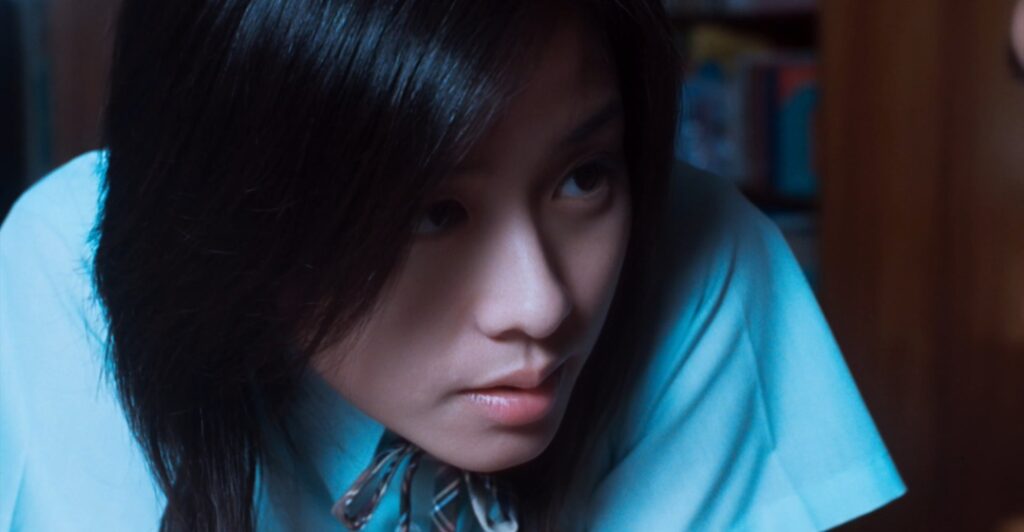At Long Last, ‘July Rhapsody’ Is Reaching American Shores
This is a film that made no small splash upon its initial release. It was nominated for a slew of awards and won a significant number of them after having its Hong Kong premiere 22 years ago.

Director Anna Hui’s “July Rhapsody” will be making its American debut 22 years after having its Hong Kong premiere. What took so long for it to reach these shores? The mysteries of film distribution are contingent upon a variety of factors, but here is a film that made no small splash upon its initial release.
“July Rhapsody” was nominated for a slew of awards by various organizations — in India and Taiwan, no less than China — and won a significant number of them. Two of the actors were pop stars, one of them being “The Heavenly King of Cantopop,” for Pete’s sake. Ms. Hui had proved her directing mettle on both the small and big screens. You’d think that these would be sufficient selling points to market the film internationally.
That, and the story of encroaching middle-age — what with its requisite array of second-guessing, disappointments and compromises — is as universal a motif as a press flack could ask for. Oh, and there’s illicit sex, and it’s the best kind, at least in dramatic terms.
Perhaps Ms. Hui’s directorial style — unobtrusive, but gentle and sometimes pointed — isn’t flashy enough, though she does engage in soap opera-like flourishes. This is especially true of Tommy Wai’s soundtrack, which doesn’t skirt the soupy so much as capitulate to it.

Conjecture will only get a person so far, particularly given the vagaries of taste. Although “July Rhapsody” is too neat in its symmetries and fuzzy in emotional resolution, the film is a remarkably understated variation on the story of a family in flux. The baseball player Satchel Paige famously remarked that one shouldn’t look back lest “something might be gaining on you.” In Ms. Hui’s film, history gains all too steadily on each of its participants. Looking back is a venture best approached cautiously.
Lam Yiu-kwok (Jacky Cheung, the aforementioned “Heavenly King”) is a 40-something instructor at a high school in Hong Kong. His forte is poetry and he soldiers through his lessons notwithstanding the rowdy and/or bored students in the classroom. One student, Wu Choi-lam (Karena Lam), is particularly bored. She’s flippant, dismissive, and taken with Lam — a fact that hasn’t gone unnoticed by his colleagues. Lam dismisses the notion, but his interest is piqued. Wu is very pretty.
Lam’s homelife is tense. A small apartment is all he can afford; between wife Ching (Anita Mui) and two adolescent sons, the thoughtful Yu (Eric Kot) and the attitudinizing Stone (Jin Hui), the place is cramped. Lam and Ching talk about money or, rather, the lack of it. Whenever tying one on with a cadre of friends from college, Lam is cognizant of his modest salary. An abiding frustration grows when Ching starts making day trips to visit an ailing teacher in whose class the couple met, Mr. Seng (Tou Chung Hua). There are hints of a past misadventure between Ching and Mr. Seng. Lam keeps mum.
All the while, Wu continues her flirtation, teasing Lam about his teaching and flashing a bit of leg. Against his better inclinations, Lam begins to succumb. He visits Wu at her job — a hipstery store at a nearby mall — and takes her out for sushi. Wu is good at pressing buttons and very smart, but apathetic about school. When an old friend invites Lam to the grand opening of a distant nightclub, the teacher takes his student as his guest. Events take a turn at which Ms. Hui hints with great delicacy.
Ms. Hiu’s picture is better in its build-up than it is in the stretch. As events begin to clarify, the players take to them with surprising equanimity, though the ending is vague enough in its particulars to waylay anything too predictable. Ms. Hiu flits between the past, the near-past, and the present with an often difficult-to-parse promiscuousness, but she keeps the characters in sight and clearly defined. The actors aid her in this pursuit by bringing welcome stoicism to melodramatic circumstances. “July Rhapsody” is as imperfect as its characters and just as engaging.

